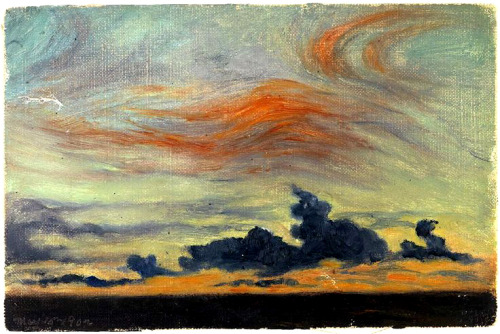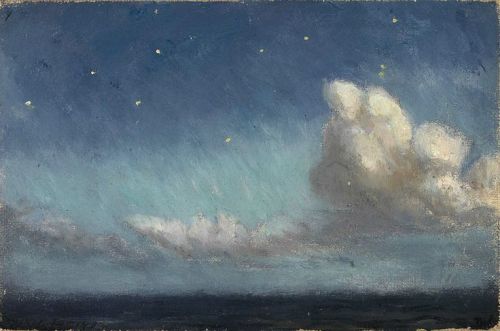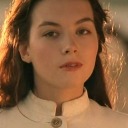Telltaleangelina - Tell-tale Angelina

More Posts from Telltaleangelina and Others
Oh, I forgot about the stream! 😭 I wish I'd taken more notice when I was going back again and tried to compare all the descriptions of them 😭
After I read the scene where Laurie recognises a bit of Andrew in an old photograph of Ralph, I went back to re-read (again) the part where Laurie meets Andrew for the first time because I was absolutely convinced there must be something in how he's described that clues you into Laurie making an unconscious connection to Ralph...only thing I came away with is that Laurie really likes blonds 😭




Frank Wilbert Stokes
Hello there, I would love to hear all your thoughts on 'The Last of the Wine'!
Hey, thanks for the ask! I really loved Last of the Wine! Alexias was a lovely character, and it was really interesting to watch his development and the development of his relationship with Lysis! He was so sweet in the beginning and then he became harder as the book went on; his father said that he once thought Alexias was 'too soft' to be a soldier, and I think he was right to feel that way at a certain point! His entire character progression was a trip to get through!
I absolutely loved the writing, which was beautiful as always, and there are some parts of the story I don't think I'm going to forget about anytime soon; the story of Phaedo (I cried), the moment Alexias exposes his brother and asks him 'bear no ill-will to me' (I cried), quotes like 'at Gurgos's once I lay awake considering how to kill him. But already it was too late,' 'I saw death reach out for you; and I had no philosophy,' 'if there be any god who concerns himself with the lives of men, the god himself must suffer with me,' etc. etc. It was just so good but very disturbing in some points...sometimes, you never stop to wonder why people do the things they do and only see that what has been done is evil. In a way, this is good; evil things ought to be derided as such no matter the circumstances, but in another way it is unfair and unhelpful. This is how I feel about a lot of the last third of the book: I understand why and how certain things happened, I just wish that they hadn't happened.
Something that made me laugh though and which I will think about forever are the few scenes where it's apparent Mary Renault is writing with a modern audience in mind, like the absolutely hilarious scene where Alexias is afraid of asking Xenophon if he only likes girls because he doesn't want to offend him 😭 or the scene where Alexias, assuring his dying father of vengeance, says: "Am I so base of soul as to forgive my enemies?" They're really cool scenes because they kind of play with the expectations of a modern audience and subvert common sentiments and understandings in modern culture and society; the opposite situation in the Xenophon scene would seem likelier to a modern person (especially at the time Mary Renault was writing) with Xenophon worrying about offending Alexias by asking him if he likes boys. And it's really a head-trip to read that question asked by Alexias because it's a direct contradiction to the common and widely known sentiment of forgiveness and loving your enemies within Christianity...this becomes 10x funnier 10 pages later when Alexias accidentally stumbles onto the whole point of Christianity 'God with us' 😭😭😭 I love the whole sequence of these scenes because they seem written specifically to challenge the reader; to get it through your mind that this was a foreign place and time, and these people are foreign to us; they have an understanding different from our own...but maybe not completely different at the same time.
Anyway, I don't know if this makes sense, my thoughts are kind of all over the place with this one but the tldr version of it is: I loved it! The writing was beautiful! It made me sad!
"Have you got a brook in your little heart"
by Emily Dickinson
Have you got a brook in your little heart, Where bashful flowers blow, And blushing birds go down to drink, And shadows tremble so?
And nobody knows, so still it flows, That any brook is there; And yet your little draught of life Is daily drunken there.
Then look out for the little brook in March, When the rivers overflow, And the snows come hurrying from the hills, And the bridges often go.
And later, in August it may be, When the meadows parching lie, Beware, lest this little brook of life Some burning noon go dry!
was the inquisitor corresponding with Tatiana lightwood? is that why he would want to burn a random letter and any other evidence he had that he had a vendetta against the lightwoods and herondales? 😭😭😭
"So much of the book’s cruelty (in the main characters, I wouldn’t really count like… Straike) is driven by deep shame at what they perceive as the “dark” elements of themselves, reflected outwards…” This is actually genius, and I never would’ve thought of it if you hadn’t mentioned it! Thank you! I wonder if it can be seen with even Mr. Straike: I think a huge part of displaying Straike's cruelty and hypocrisy in the book was done by nothing other than simply contrasting him with the conscientious objectors in hospital and he made it a point to be very insulting about them when Laurie is at home (but this may just be because everyone disliked them at the time).
Re Andrew’s letter though: I think he’s referencing punching Bunny. The thing he wants to kill is both his feelings for Laurie (which are, in that moment, an extension of his feelings of learning about Laurie/Ralph) and also his anger at being suddenly confronted with the truth of his emotions in quite possibly the worst way known to mankind. And I think he says he can never say what he wants to now because even if he establishes regular contact with Laurie through letters (which we aren’t even sure he does), he probably really will never allow himself to speak openly about the things he feels; he believes it’s wrong to feel this way, he might see it as temptation if Laurie looks on it favourably, etc.
‘I hope he finds a kindred spirit at the Quaker house in London.’ This is actually the perfect happy ending for him! It would be very lovely.
It's only been a little bit of time since I reread the book (maybe 2-3 weeks) but since then Andrew's letter is the one part I keep randomly thinking about. Specifically:
"The thing you want to kill is really in yourself. That is why people become cruel in war, because they are doing what I did...there is much more I should like to say, but now I shall never be able to say it. You know I shall remember you all my life.
Love,
Andrew."
I have this idea that Laurie keeps Andrew's letter in his pocket the way he kept the Phaedrus with him at all times; at the end of the book, we see it's still there and I don't think Laurie would get rid of it.
Jonathan Harker, being encompassed with terrors that he dare not think of:

I forbid ye maidens all who let fly your lovely hair to go down to Carterhaugh for young Tam Lin is there
I wondered about the cancelled party thing too! I thought it was plausible at least because Bunny does say something about Ralph keeping Laurie a little hidden and (I think, I don't really remember) seems annoyed by this. It's not a stretch to think he'd lie about being out for the night, only to show up when he knows Laurie is there.
That said, Laurie also thinks later that Bunny isn't so much a planner as he is someone who just takes chances when they come to him. Alec hints at this too. So, I don't really know if I'm right: the level of foresight/planning that my idea of Bunny would suggest doesn't line up with the common perception of him given by at least 2 characters...honestly, Bunny (and his relationship with Ralph) always seemed odd to me. I was half-convinced the first time I read the book that Laurie was simply misjudging the situation and they weren't as serious as he imagined. I mean, Ralph never shows any real affection for Bunny in any of their scenes together! And Bunny is very weird! Their whole relationship was so weird to me lol
That Bunny car scene
Hi there @telltaleangelina I just wanted to think a bit more about the scene with Bunny and Laurie in the car scene on the back of your ask/answer.
I think you really got to the heart of it with that line ‘the practiced inflection’. Laurie uses his intuition a lot (sometimes without even being sure what he is picking up) and it’s just such a creepy line, indicating how Bunny seamlessly adopts that tone. Although I suppose there is an analogue with Ralph giving Bunny ‘the straight look’ for the first time back at the flat.
It suddenly occurred to me that cars are so symbolic of male power at that time, and it evokes that horrible trope of men taking women out and expecting some kind of ‘payment’. I wonder if Bunny is just so cynical that he assumes Laurie is paying Ralph back in kind for the lift, and decides he wants a piece of the action. Or he thinks Ralph is being ridiculously gentlemanly about Laurie and wants to bring him down to his level.
I realised the scene provides a contrast to the earlier car scene with Ralph. I know we love the little knee touch in the 1953 version when they are parked up at the scenic spot, but to me, she took that out for a reason in the 1959. It shows the high level of tension (not just sexual!) between them and the way both of them are being hyper-vigilant – Ralph trying very hard to judge the moment with Laurie, and Laurie trying very hard to be respectful of the fact that Ralph has a boyfriend. And also, Laurie sits in silence to avoid attracting Ralph’s anger when he hits the traffic. And he is so uncomfortable with being dependent on Ralph – the number of times he tries to leave the party to get the bus, and he tries it again at Bunny’s.
I also realised that it almost doesn’t matter whether Bunny would have followed through with his threat or not. It just conjures up the horrible thought that he is used to getting what he wants, and most of the time, people don’t stand up to him. So perhaps this is a neat way to show Laurie’s strength of character in a crisis.
The other thing that is quite disturbing, if not surprising, though, is that Laurie then plays it down with Ralph. Partly because he fears not being believed (a bit like Alec silently taking the blame for Bunny’s gossip for a quiet life), and partly to spare Ralph’s feelings. I realised he would be very influenced as well by the ‘no snitch’ rule in school, where telling on another boy would be considered worse than the original offence. But it is cowardly too. I wonder if his anger on the staircase is partly fueled by his frustration at being put in that situation, the suggestion that Ralph is so inured to that kind of behaviour that he doesn’t even notice any more. And in a way Ralph is responsible, because even if Bunny spiked his drink, he still chose alcohol over tea. But Laurie is also too passive. In the end Ralph ends it with Bunny without knowing for sure what he did. Unless he knows because Bunny has form. In which case why is he with someone like that? Either way, Laurie’s horrible accusations on the staircase have the ring of truth.
And finally I can’t go without mentioning that other linked car scene – Ralph kissing Laurie on the first night at the party (very heavy hint anyway) when he is dreaming about his mother kissing him!! And Ralph sitting there having a cigarette while he waits for Laurie to wake up is so sweet.
-
 halflife4mac liked this · 1 year ago
halflife4mac liked this · 1 year ago -
 whizzoqualityassortment liked this · 1 year ago
whizzoqualityassortment liked this · 1 year ago -
 caxrtti liked this · 1 year ago
caxrtti liked this · 1 year ago -
 kutsch-kalissa reblogged this · 1 year ago
kutsch-kalissa reblogged this · 1 year ago -
 suspicious-potatoes liked this · 1 year ago
suspicious-potatoes liked this · 1 year ago -
 katebush1985 liked this · 1 year ago
katebush1985 liked this · 1 year ago -
 pallav reblogged this · 1 year ago
pallav reblogged this · 1 year ago -
 thekickinside reblogged this · 1 year ago
thekickinside reblogged this · 1 year ago -
 corvus-pictor reblogged this · 1 year ago
corvus-pictor reblogged this · 1 year ago -
 corvus-pictor liked this · 1 year ago
corvus-pictor liked this · 1 year ago -
 feazelbal liked this · 1 year ago
feazelbal liked this · 1 year ago -
 warriorofdune reblogged this · 1 year ago
warriorofdune reblogged this · 1 year ago -
 eddardsharpe reblogged this · 1 year ago
eddardsharpe reblogged this · 1 year ago -
 free-my-boy-grumbot liked this · 2 years ago
free-my-boy-grumbot liked this · 2 years ago -
 kurolini909 liked this · 2 years ago
kurolini909 liked this · 2 years ago -
 ncromancr liked this · 2 years ago
ncromancr liked this · 2 years ago -
 keiachi-chan reblogged this · 2 years ago
keiachi-chan reblogged this · 2 years ago -
 graceful-not liked this · 2 years ago
graceful-not liked this · 2 years ago -
 eclecticskeleton liked this · 2 years ago
eclecticskeleton liked this · 2 years ago -
 abhiiis liked this · 2 years ago
abhiiis liked this · 2 years ago -
 my-t4t-romance liked this · 3 years ago
my-t4t-romance liked this · 3 years ago -
 soulreaper1 liked this · 3 years ago
soulreaper1 liked this · 3 years ago -
 shinonomebrainworms reblogged this · 3 years ago
shinonomebrainworms reblogged this · 3 years ago -
 shinonomebrainworms liked this · 3 years ago
shinonomebrainworms liked this · 3 years ago -
 fillededimanche reblogged this · 3 years ago
fillededimanche reblogged this · 3 years ago -
 creepingcats019 liked this · 3 years ago
creepingcats019 liked this · 3 years ago -
 skylarstarlight liked this · 3 years ago
skylarstarlight liked this · 3 years ago -
 schoolofdecadence liked this · 3 years ago
schoolofdecadence liked this · 3 years ago -
 cheezbot liked this · 3 years ago
cheezbot liked this · 3 years ago -
 8bedhead reblogged this · 3 years ago
8bedhead reblogged this · 3 years ago -
 8bedhead liked this · 3 years ago
8bedhead liked this · 3 years ago -
 e-6000 liked this · 3 years ago
e-6000 liked this · 3 years ago -
 enbysiriusblack liked this · 3 years ago
enbysiriusblack liked this · 3 years ago -
 frappewithwhippedcream liked this · 3 years ago
frappewithwhippedcream liked this · 3 years ago -
 duranie1996 liked this · 3 years ago
duranie1996 liked this · 3 years ago -
 ksenerwteskuriakes liked this · 3 years ago
ksenerwteskuriakes liked this · 3 years ago -
 ohcasserolemycasserole reblogged this · 3 years ago
ohcasserolemycasserole reblogged this · 3 years ago -
 greeksandmagic reblogged this · 3 years ago
greeksandmagic reblogged this · 3 years ago -
 toofilthy liked this · 3 years ago
toofilthy liked this · 3 years ago -
 exsrodd liked this · 3 years ago
exsrodd liked this · 3 years ago -
 wickedlybittersweet reblogged this · 3 years ago
wickedlybittersweet reblogged this · 3 years ago -
 wickedlybittersweet liked this · 3 years ago
wickedlybittersweet liked this · 3 years ago -
 the-queens-court reblogged this · 3 years ago
the-queens-court reblogged this · 3 years ago

Just a blog for whatever I'm interested in at any given time. 23.
125 posts

